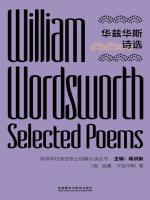Soul's mirror
李维宁
Introduction In an age of industrial dawn and intellectual upheaval ,
William Wordsworth (1770-1850) emerged as a prophet of the ordinary
sublime . Selected Poems of Wordsworth is not merely an anthology but a
pilgrimage through the landscapes of consciousness itself . This
collection , spanning from Lyrical Ballads (1798) to later introspective
works , reveals how Wordsworth transformed dew on a leaf and the
laughter of a solitary reaper into metaphysical revelations . Themes :
Nature as Spiritual Syntax Wordsworth ' s genius lies in his ontological
inversion : Nature is not a passive backdrop but an active teacher
(" Let Nature be your teacher "- The Tables Turned ). In
Tintern Abbey , the Wye Valley becomes a palimpsest of memory where
" the still , sad music of humanity " harmonizes with
waterfalls . His concept of " spots of time "( The Prelude )-
mundane moments charged with transcendent meaning - predates modernist
epiphanies by a century . Unlike Blake ' s fiery mysticism , Wordsworth
finds divinity in quiet reciprocity , as seen in / Wandered Lonely as a
Cloud , where dancing daffodils become a " bliss of solitude "
etched in mental cinema . Language : Democratizing the Sublime Rejecting
Augustan grandiloquence , Wordsworth ' s " real language of men
"( Preface to Lyrical Ballads ) was revolutionary . Yet his
simplicity is deceptive . Consider the paradox in My Heart Leaps Up
:" The Child is father of the Man "- a line that collapses
time through ecological continuity . His use of blank verse in The
Prelude creates a rhythmic pulse mirroring both walking and thought
itself . Philosophical Undercurrents Wordsworth ' s pantheism often
flirts with existential angst . In Ode : Intimations of Immortality ,
the " visionary gleam " fades with age , yet maturity finds
solace in " philosophic mind ." This dialectic between
childhood ' s raw wonder and adult reflection forms the spine of his
ethos . His environmental prescience resonates today ; lines like "
Nature never did betray the heart that loved her "( Tintern Abbey )
read as an eco - spiritual manifesto . Legacy & Relevance While
criticized by modernists for sentimentalism , Wordsworth ' s influence
is undeniable . Frost ' s pastoral ambiguities and Eliot ' s "
objective correlative " owe debts to his method . In our digital
age , his call to " come forth into the light of things "
remains a radical act of attention . Conclusion This selection is
both mirror and lamp : lecting our estrangement from the natural world
while illuminating paths to re - enchantment . Wordsworth doesn ' t just
describe landscapes - he dissects the act of perception itself . To read
him is to witness consciousness dancing with the cosmos , one ordinary -
yet - eternal moment at a time .



 京公网安备 11010802032529号
京公网安备 11010802032529号